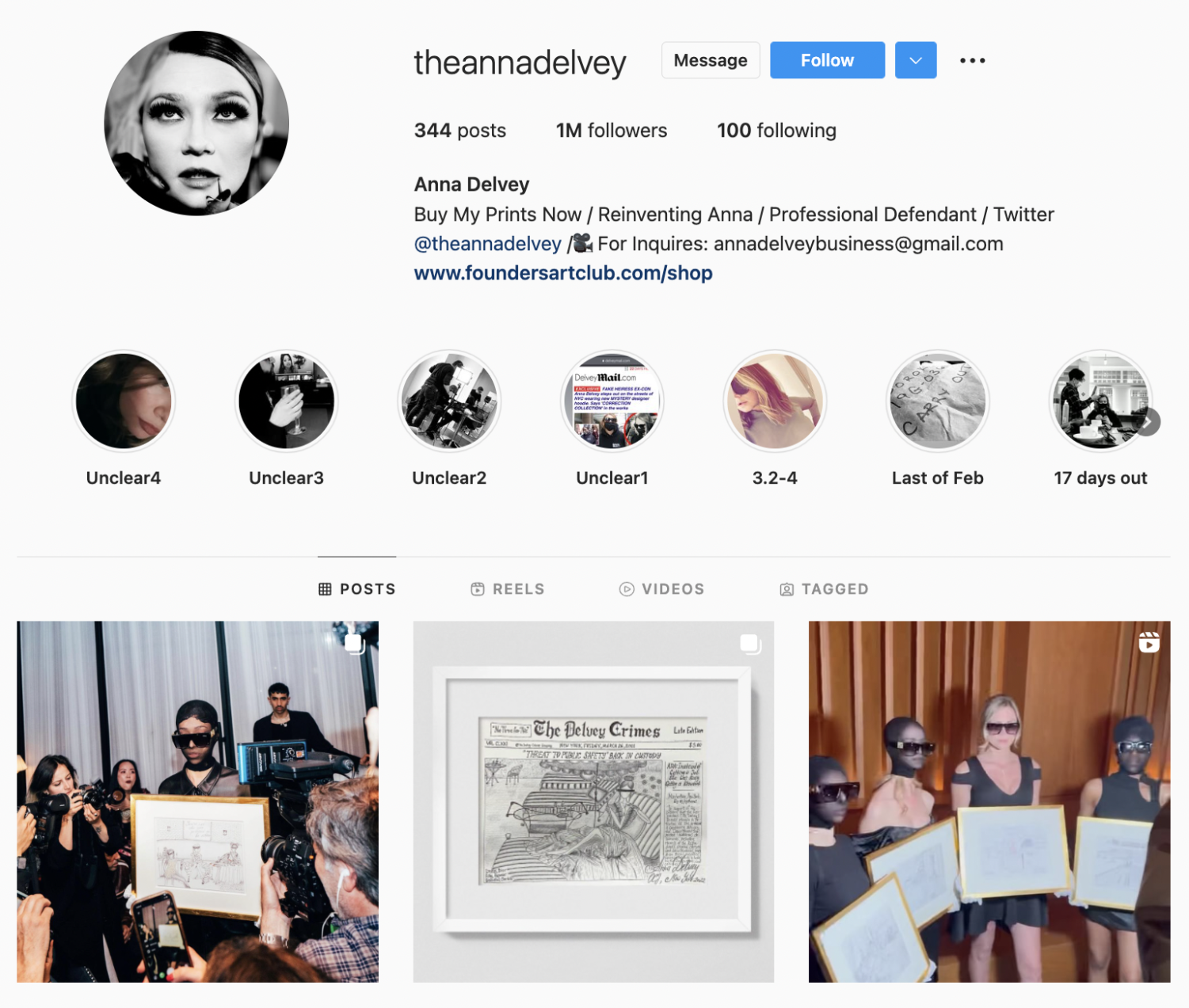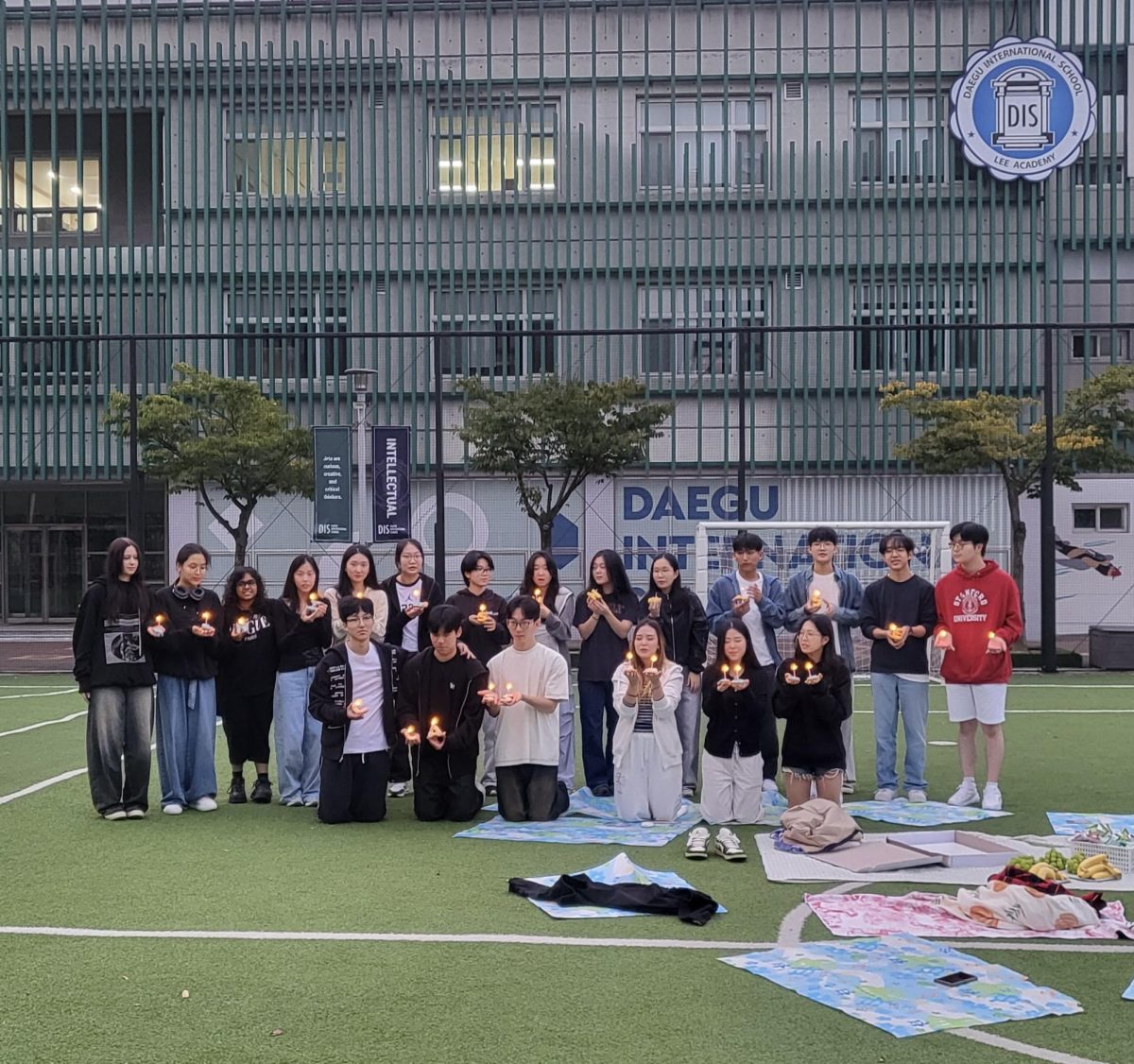People of the 21st Century are Sugarcoating Themselves
The Success Behind Anna Sorokin and Jia Song: the Fakers that Thrived Thanks to Social Media
May 30, 2022
What do you usually use social media for? Maybe you use it for messaging friends or posting photos, videos, or stories about yourself. Y’know, normal social media activity. Because of social media’s various ways of entertainment, the number of users is escalating worldwide. However, among the 4.6 billion accounts around the globe, only a few actually stand out.
Usually, these are celebrities who post photos of their luxurious lives – Squid Game actress and recent Louis Vuitton ambassador Hoyeon Jung, teen pop star Olivia Rodrigo, and the Kardashian-Jenner clan may ring a few bells. That being said, not all that follow such public figures are fans. Many simply lurk on the feed of social media influencers because of the fame, money, and attention the stars receive. Sadly, a few of these renowned figures went beyond the legal fringes and took extraordinary measures to obtain this ludicrous status.
Fame casts a crazy spell on us: people are willing to put up a facade to receive the benefits and fame of being a “public figure” with a massive social media following. 2022 can easily be marked as an expose year for the fraudsters behind the selfies. The infamous stories of Anna Sorokin and Jia Song, both of whom created false identities of themselves to become Instagram influencers with over a million followers, headlined the news throughout the world.
Anna Sorokin, a German con artist who falsely presented herself as Anna Delvey to the socialite scene in New York City, claimed the false title of being an heiress to a German oil company. While her father wasn’t the insanely rich and savvy CEO she painted him to be, Sorokin’s confidence helped reinforce her heiress cosplay.

Sorokin would often upload selfies of herself at luxurious hotels, vacations, and parties with affluent superstars, supermodels, and the trust fund babies behind families with major legacies and connections. Her interactions and posts also helped her to build a credible persona that people genuinely fell for, and by using her carefully crafted identity, “Delvey” scammed the glamorous scene in New York, Paris, and London.
Eventually, Anna Sorokin’s fraudulent acts were uncovered, and the judge sentenced her to four to twelve years of prison on May 9, 2019. During the inspection, the police discovered that she had swindled a total of $200,000 from various restaurants, hotels, and banks. Her infamous story caused quite an uproar and was eventually made into a Netflix series called Inventing Anna.

Another shocking poseur, Jia Song, is a Korean Instagram influencer otherwise known as Freezia. Freezia became a sensation among the social-media obsessed Gen Z after she appeared in a Netflix series called Single’s Inferno, a Korean version of the popular British reality show, Love Island. Since then, Freezia has become a distinguished influencer who posts her favorite luxury brand products onto her social media account in her lavish apartment in Gangnam, Seoul.

Surface level wise, Freezia seemed to have the perfect life everyone wished for. She was rich, pretty, and successful, and had an army of fans who practically worshiped her Instagram identity. However, some people were suspicious of her too-perfect exterior and became determined to find a crack in Freezia’s seemingly flawless armor.
After a thorough investigation, the public caught Freezia flaunting replicas as authentic brand products. Her forgery incited a public outrage, and Freezia soon responded with an apology video.

The stories of Anna Delvey and Freezia highlight the current trend of social media users faking and sugarcoating their online identities. Though it might not be as severe as Sorokin or Song, the tendency to embellish your media posts exists in all of us. Additionally, if you become obsessed with perfecting your internet persona, you will not be able to focus on what is truly important to you.
Faking your true nature in the online world and decorating your Instagram feeds might bring temporary satisfaction, but superficial things never last for long. People must be satisfied and be content with their authentic selves, instead of polishing their fabricated personas on social media to fit an “aesthetic” label.
Scrolling through the internet, one’s opulent life may evoke a desire to become just like them. But we consistently seem to forget that dreams are meant to be achieved and be made real, not something you fabricate. Try asking yourself: which life are you focusing on now? Is it the artificial one you have on-screen, or is it the authentic, genuine you? That’s a tough question Sorokin and Freezia avoided, but it’s something we must face to avoid a similar outcome.





















































